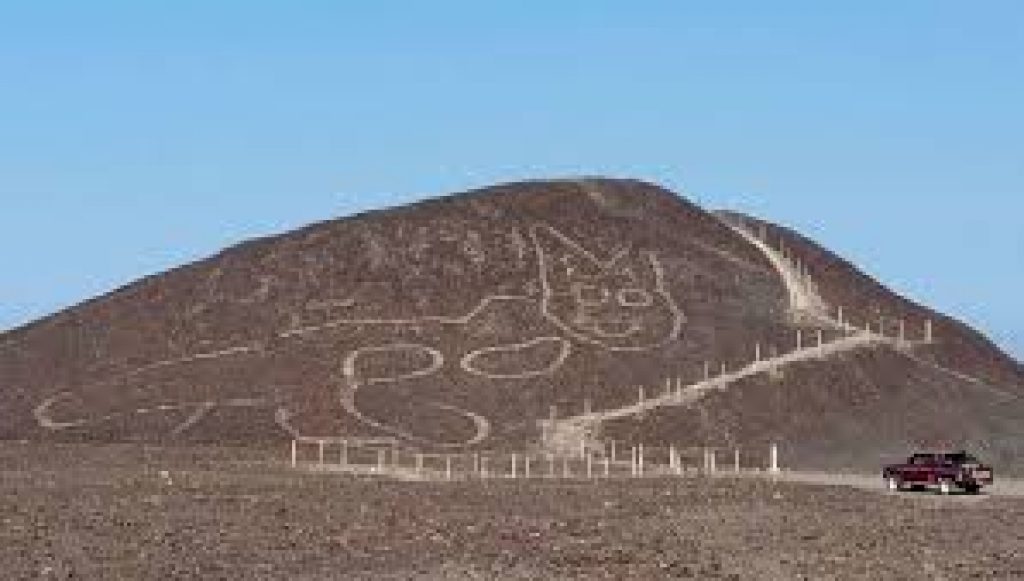The giant cat drawing at a UNESCO World Heritage site in Peru

Peru’s famous Nazca Lines, a UNESCO World Heritage Site known for its depictions of larger-than-life animals, plants and imaginary beings, grabbed the spotlight on social media recently after the discovery of a hitherto unknown massive carving –– that of a resting cat on the slope of a steep hill.
Daily Current Affairs Quiz 2020
Key-Points
The Nazca Lines are a group of very large geoglyphs made in the soil of the Nazca Desert in southern Peru.
They were created between 500 BCE and 500 CE by people making depressions or shallow incisions in the desert floor, removing pebbles and leaving differently coloured dirt exposed.
Most lines run straight across the landscape, but there are also figurative designs of animals and plants. The figures include pelicans (the largest ones sized around 935 feet long), Andean Condors (443 feet), monkeys (360 feet), hummingbirds (165 feet), and spiders (150 feet).
There are also geometric shapes, such as triangles, trapezoids and spirals, and some have been associated with astronomical functions.
The Lines were declared a World Heritage Site by UNESCO in 1994.